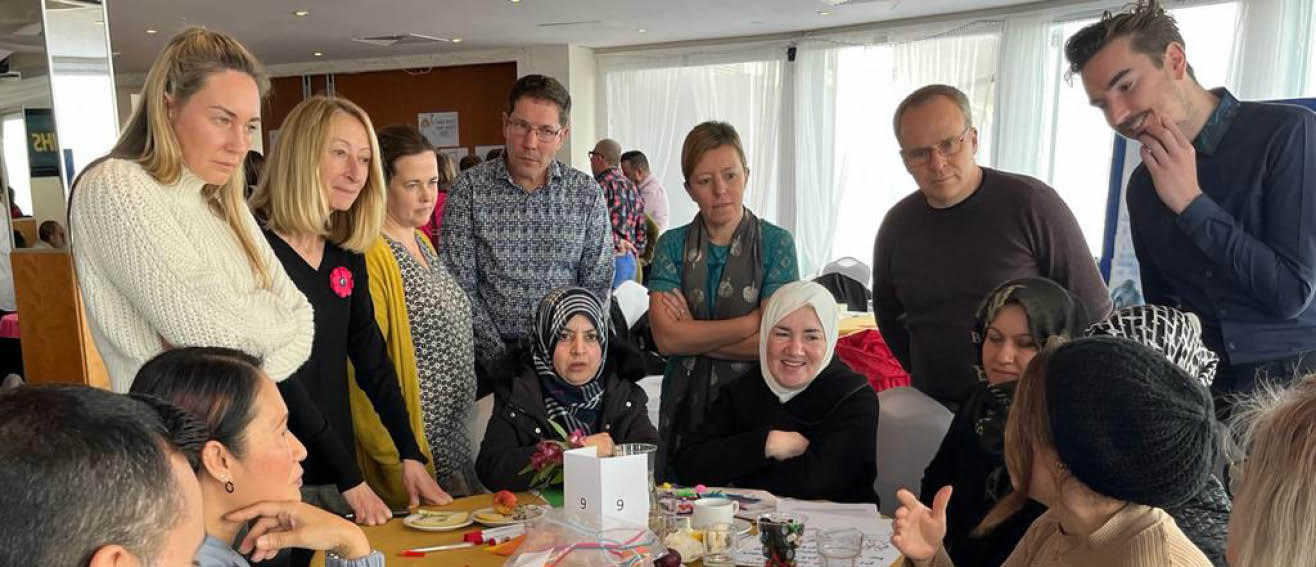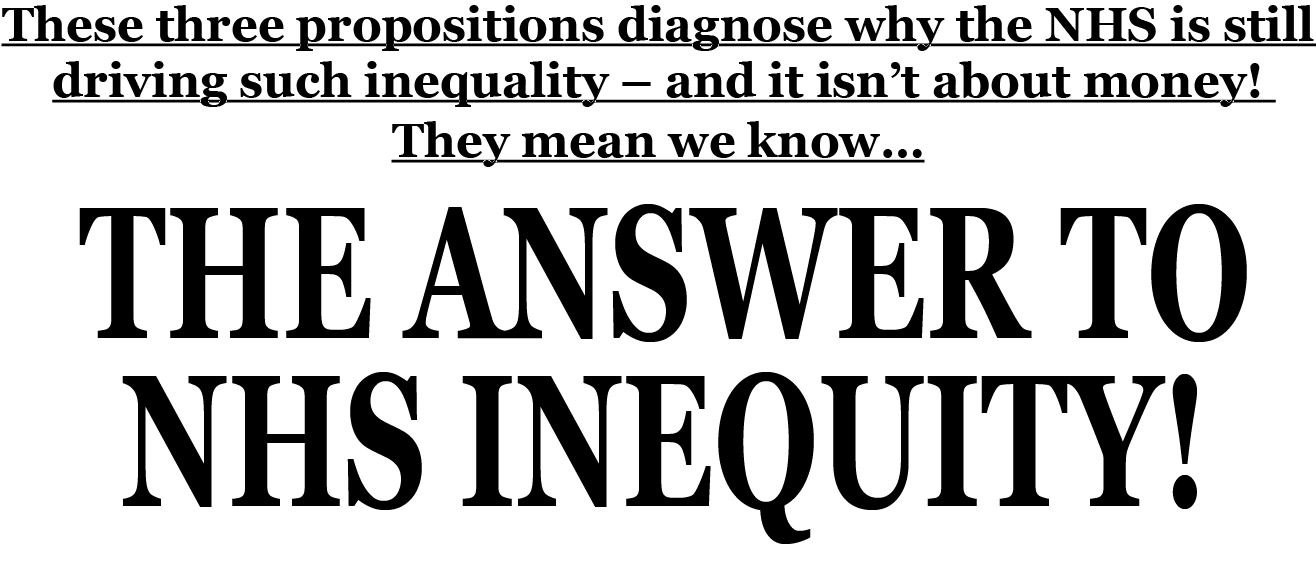
The Answer To NHS Inequity
 By Universal Healthcare Reporter.
By Universal Healthcare Reporter.
EVERYBODY knows that the NHS is not quite living up to its name.
But now an innovative group of academics, health professionals and voluntary sector activists have worked out why, how and what to do about it.
Starting on two sites – Bradford District and Craven in West Yorkshire and Hastings in East Sussex – the team from the Universal Healthcare Network at London South Bank University have supported local people to bring about a small revolution in health services.
Following a series of big gatherings in both locations - which included individuals associated with the NHS such as patients and doctors - those in attendance began collaborating to develop at least 20 ‘prototypes’ aimed at improving services to accomodate everyone’s needs.
These range from building relationships in Bradford District and Craven between A&E nurses and local charities and voluntary sector organisations to improve the experiences of children and young people in their health – to designing a proactive GP appointment system for long-term high intensity users in Hastings.
The idea is that the same techniques and insights will then be expanded to new sites across the country when the Universal Healthcare inquiry finishes at the end of the year.
“Then anyone can sit down where they live and use our materials to do the same,” said Inquiry leader Becky Malby. “We are showing how any group of people can help their local NHS be fair for all.”
Becky’s team is now doing a deep review of several of these long-term patients to stimulate new thinking about how to engage differently with them, using a wider array of roles at the practice outside just GPs and providing GP continuity.
The same analysis has been run across all practices in the area to show them that they have similar numbers of long-term, high attending patients.
The Universal Healthcare team investigated what is happening now: using data, they checked what they were finding in local workshops and then shared their joint interpretation.
“What we found was that the old world bites back,” said Becky.
Bradford District and Craven participant Bill Graham said: “We found that lessons from the vaccine programme that took the NHS to people had been partly lost. But this gave us the energy to try again, to explore how the NHS can meet need where people are.” They also found that:
* PRIMARY CARE in poorer communities gets less funding than those in wealthier communities – but there are ways this can be adjusted to be fair.
* CHILDREN and young people are receiving relatively limited access to necessary services outside of hospitals, compared to older individuals.
* A GREAT OFFER, that sounds fair, has actually increased inequalities, because it favours people that can access those services.
There are so many third sector solutions that can support people currently using the NHS as the front door - but the sector needs an enabling collaboration with the NHS.